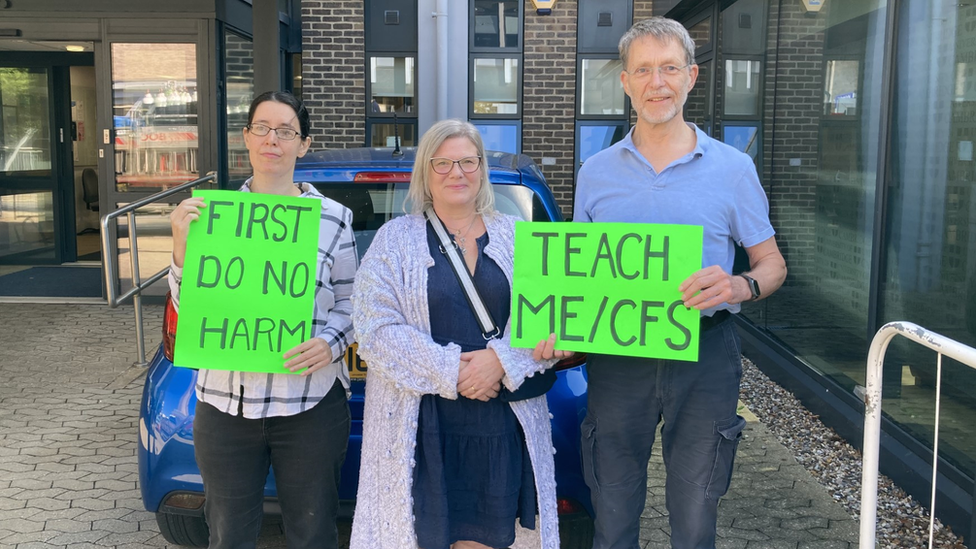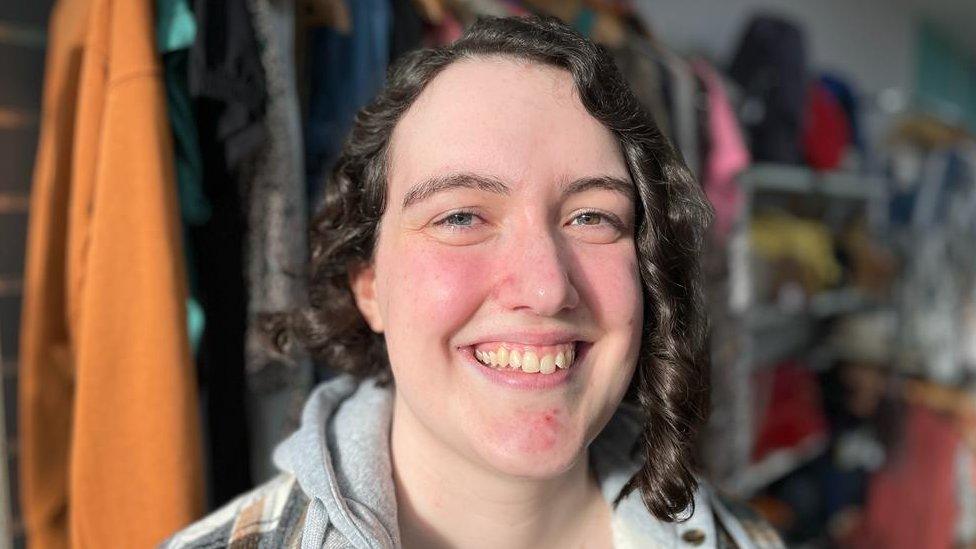Cambridge ME protest calls for better medical training across UK
- Published

Protesters turned up outside the University of Cambridge's School of Clinical Medicine
People with ME have been protesting in Cambridge, calling for doctors nationwide to receive better training on the condition.
Protester Katie Johnstone said there was a "problem" getting knowledge about it into the "medical mainstream".
Also called chronic fatigue syndrome, ME can affect anyone and its main symptom is extreme tiredness.
The University of Cambridge's School of Clinical Medicine said it "regularly reviews" its teaching materials.
Mark Harper and Ms Johnstone both have ME (myalgic encephalomyelitis), external and were protesting outside the school at what they perceive to be a lack of training in medical schools across the UK.
Mr Harper told BBC Radio Cambridgeshire it was a "very disabling disease" that the medical community had "no training on how to handle".
"This is after decades and decades of the disease being known, and we want that to change," he said.
He added there were 180 members in his Cambridge ME support group and about 40 in another covering Peterborough and rural Cambridgeshire.
"Out of all those, we're almost the only people well enough to come and protest. Unfortunately, that's the way it is with ME," he said.

Mr Harper said he wanted the medical community to "actually notice ME/CFS"
Ms Johnstone said "medical doctors and medical students don't know enough about our illness in order to give us proper medical care".
"The most severe patients can become malnourished because they are too weak to chew or swallow food, yet they receive no medical help at all," she added.
"We just have to get that amazing knowledge of medical education and clinical practice into the medical mainstream."
A spokesperson from Cambridge's School of Clinical Medicine said it recognised it was a "very real condition" and took its teaching about it "very seriously".
"We regularly review our teaching materials and resources, and have recently updated our ME/CFS materials, in particular to keep them in line with the 2021 NICE guidelines," they said.
"Our curriculum teaches students about ME/CFS and its related issues over their three clinical years, enabling our new graduates to be competent in the recognition, management and referral of ME/CFS."

Follow East of England news on Facebook, external, Instagram, external and X, external. Got a story? Email eastofenglandnews@bbc.co.uk, external or WhatsApp us on 0800 169 1830
- Published22 February 2023

- Published23 December 2022
